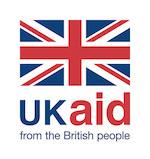This blog is part of a series exploring COVID-19 and its impact on digital humanitarian action. More findings related to current trends, risks and the path forward can be found in our report.
In a world where minimising human contact where possible is at the forefront of overcoming the COVID-19 pandemic, mobile technology has played an important role in facilitating assistance – across both the traditionally termed development sector and the ever expanding humanitarian sector. The figurative line between the two sectors continues to blur as the conventional profile of the type of person in need of assistance changes with the increasingly protracted nature of humanitarian crises and the definition of what constitutes a humanitarian crisis is challenged, which has been exemplified by the global ramifications of COVID-19.
Cash and voucher assistance (CVA) has been increasingly the modality of choice in many crisis situations prior to COVID-19 and its use has further grown significantly since the onset of the pandemic. World Bank researcher Ugo Gentilini estimates that cash assistance now accounts for half of all social safety net programming by governments globally, with 190 countries and territories planning, introducing or adapting social protection measures in response to COVID-19. One of the most significant trends during the pandemic was the dramatic rise in the use of mobile money for humanitarian cash assistance and the broader remit of social safety net programming.
The ubiquity and scale of mobile networks have made mobile an attractive digital delivery channel for CVA, owing to the many benefits mobile money enabled CVA could provide, including increasing the speed, efficiency, accountability and transparency with which CVA is delivered for humanitarians organisations but also the speed, convenience and discretion for those who receive it.
With mobile money’s ability to offer contact-free delivery of CVA, demand and use of it as the delivery mechanism of choice for appropriate CVA programmes increased significantly over the past year. As highlighted in the 2021 State of the Industry Report on Mobile Money, the share of cash-based transfers made by the World Food Programme (WFP) increased almost three-fold from 3.8 per cent of cash transfers in 2019 to 8.9 per cent in 2020, transferring $192 million by the end of December, with 25 of the 67 countries reached using mobile money.
The critical role of mobile money agents in the pandemic
Despite the expedited acceleration of digitised services since the onset of the pandemic, mobile money agents remain the backbone of mobile money provider’s operational model, especially in harder-to-reach humanitarian contexts where digitisation of services is much further behind the curve. The role of mobile money agent’s in the pandemic response cannot be understated. Agent networks were specifically leveraged by government and regulators, as well as humanitarians and the broader development sector, to better respond to the pandemic. For example:
- Safaricom in Kenya partnered with the government to distribute hand sanitisers and masks through Safaricom’s agent network;
- Zain Cash Iraq worked closely with regulators to essentially classify mobile money agents as key workers to enable them to move more freely during lockdown periods, to provide cash-outs through iris scan technology in refugee settings; and
- In Ecuador, requirements for operating agent networks and onboarding agents was relaxed to allow the cash-in, cash-out (CICO) networks to expand and enabled non-financial service providers (FSPs) such as grocery stores, to become cash out agents for the government’s COVID-19 social assistance payments.
However, the increased need for agents did not necessarily equate to increased revenue for operators or mobile money agents themselves. Regulators across the globe implemented a number of measures to improve access and use of digital services, including fee waivers. Though the extension of fee waivers served its primary purpose, one unintended consequence was that some countries had seen a negative impact on the business model of mobile money providers, with potentially negative implications for long term sustainability (though many countries have now reinstated fees).
At the onset of the pandemic, as economies around the world struggled, there were reports of dwindling demand for cash ins and cash-outs and liquidity challenges as well as reports of some agent commissions having halved due to initial cash-out spikes evolving into a pattern of reduced overall transaction volume but increases in transaction size, with the net effect of a halving of average wallet balances since the crisis started. The increase in transaction sizes made liquidity management even harder, and the overall reduction in transaction volumes puts agent’s livelihoods at risk. GSMA insights from seven mobile money markets assessing consumer trends in the wake of the COVID-19 pandemic found that, particularly in the early stages of the outbreak, a substantial amount of mobile money users reported that their interactions with agents had been negatively affected with liquidity/float issues the most reported challenge, followed by agent closures and inability to find an agent.
Moving forward: Maintaining agent network sustainability
Finding a balance between accessible financial services and a sustainable business model will be important to address in the transition to a post-COVID-19 world. As highlighted above, agent networks across the globe have played an important role in the pandemic but have faced challenges that have impacted their livelihoods. To maintain the sustainability of the agent network and for agents to be able to continue the vital services they provide to many within the humanitarian sector and beyond, mobile money provider’s must remain cognisant of the fact that greater digitisation of mobile money services risks disrupting traditional agent network operations. Agent network operating models must shift in tandem with changes in how end-users use mobile money related products and services to ensure sustainability and effectiveness of mobile money operations.
Data from the 2021 State of the Mobile Money Industry highlights that though there was a dip in mobile money agent activity at the initial phases of the pandemic, agent networks continue to expand and remain resilient. As mentioned, the pace of digitisation in traditional humanitarian settings (e.g. in camp settings) is often slower than in other settings, so, for the foreseeable future at least, the agent network will remain a critical human touchpoint in the delivery of essential services and mobile money enabled CVA to those most in need.



